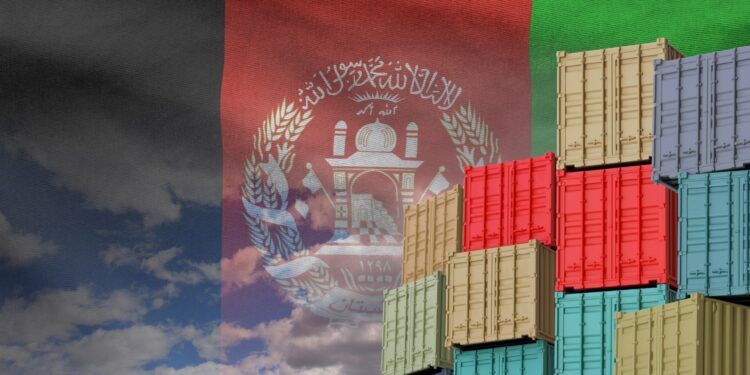13/9/2024–|Last update: 9/13/202404:24 PM (Makkah Time)
A report in the French newspaper Le Monde said that Central Asian countries, led by Uzbekistan and Kazakhstan, have begun working on rapprochement with the Taliban government in Afghanistan for economic and security reasons.
The report by writer Emma Collet added that the visit of Uzbek Prime Minister Abdulla Aripov to Kabul on August 18 is considered an important event for the Taliban regime, which is not recognized by any country.
The writer pointed out that the two parties signed about 35 trade and investment agreement protocols worth $2.5 billion, with aspirations to increase the volume of trade exchange to $3 billion in the future.
However, the writer added that this visit did not cause many surprises on the international scene, as the historical relations between Afghanistan and Uzbekistan continued to develop after the Taliban came to power.
Trade relations with Uzbekistan
According to the writer, Tashkent believes that Uzbekistan’s strengthening of trade relations is the only way to “normalize” exchanges with Afghanistan, which will be able to import fuel, agricultural products, construction materials and electricity from Central Asia, for which Uzbekistan is the main gateway.
“Tashkent prefers economic influence to formal diplomatic relations,” the writer quoted expert Hamzat Boltaev as saying. The aim is to create an economic lever to push the country toward enhanced regional discussions and more inclusive diplomacy.
He added: But the attempt to gradually push the Taliban towards structural changes in internal and foreign policy through trade dependence is still facing difficulties in achieving tangible results.
The writer pointed out that tensions still exist, especially regarding the issue of water, as Uzbekistan was unable to prevent the construction of the Qush Tepe Canal in the spring of 2023, which passes through the province. Balkh In northern Afghanistan, through which one-fifth of the water of the Amu Darya River is diverted.
Uzbekistan and Turkmenistan are suffering from low water levels in this river, which greatly affects the irrigation of agricultural lands in both countries.
However, the writer adds, Afghanistan has now become of particular importance in terms of trade exchanges with these countries.
Relationship with Kazakhstan
The writer said that Kazakhstan, the largest country in Central Asia, is also making strenuous efforts to get closer to the Taliban, as Astana decided in December 2023 to remove the Taliban from its list of terrorist organizations, followed recently by Kyrgyzstan by removing the movement from the register of banned organizations on September 5.
The move was for “commercial reasons,” a representative of the Kazakh Foreign Ministry said.
Last year, the writer confirms, the Kazakh capital welcomed a large delegation of Taliban businessmen with great enthusiasm, and contracts worth $200 million were signed, mainly related to the supply of grain and flour to Afghanistan.
“The war in Ukraine was one of the main reasons for Kazakhstan’s rapprochement with Afghanistan, which helped diversify its trade exchanges,” expert Hamzat Boltaev was quoted as saying.
“Central Asian countries see the Taliban’s rule as a short-term opportunity to end the long conflict within Afghanistan and enhance regional security,” Agoybai Smagulov, former Kazakh ambassador to Kabul from 2005 to 2011, was quoted as saying.
What about Tajikistan?
According to Le Monde, the Tajik government, which bans any Islamic movement on its territory, finds it difficult to establish a dialogue with the Taliban, but the relationship between the two countries is not without contradictions. Although the Afghan consulate in Khorog, located in the Tajik region bordering Afghanistan, was transferred to the Taliban in 2023, the Afghan embassy in Dushanbe is still under the control of the former government.
Afghanistan shares its longest border with Tajikistan, which is considered the country with the most limited relations with the Taliban.
The report spoke about efforts by Turkmenistan – which is considered one of the most closed countries in the world – to launch a railway project aimed at linking the country with Afghanistan to create an alternative route to the one that passes through Uzbekistan.



